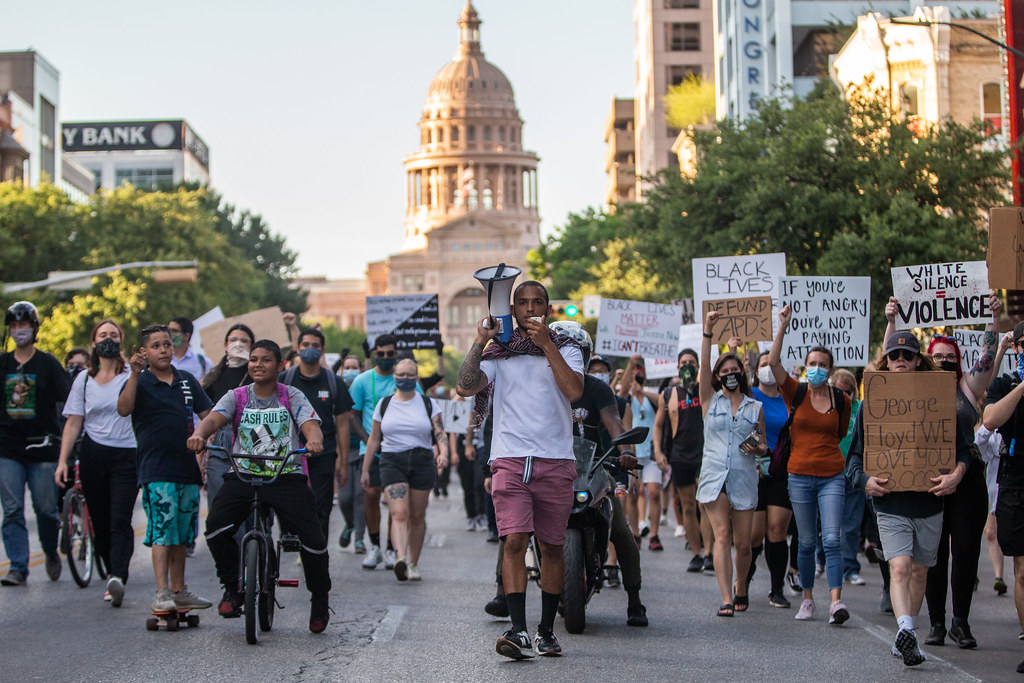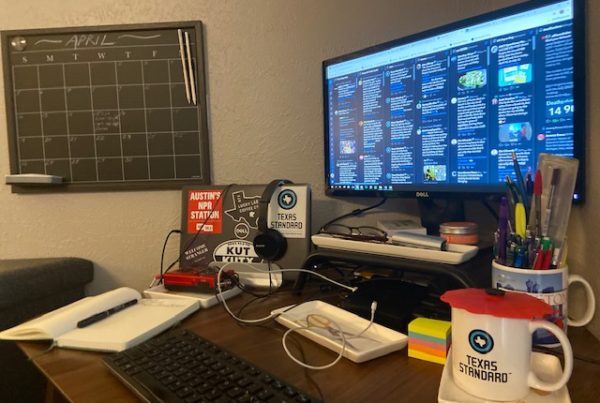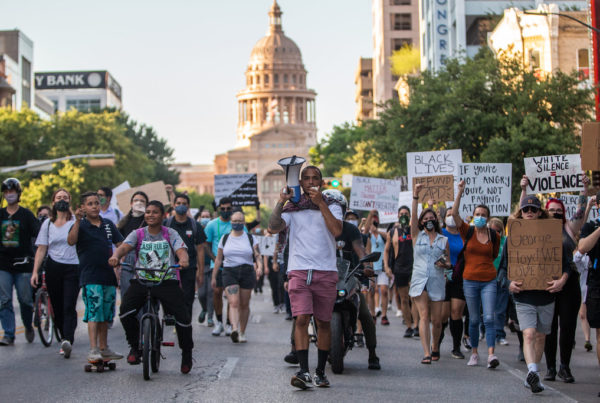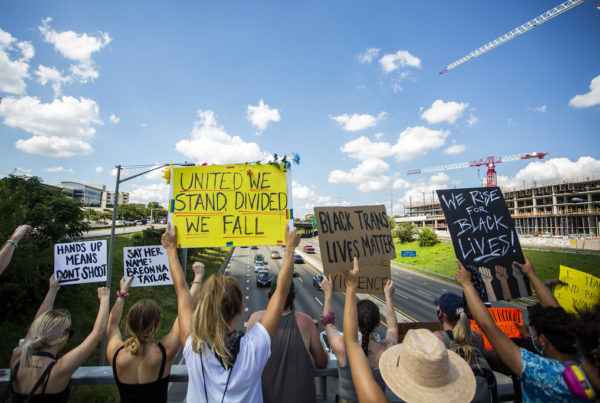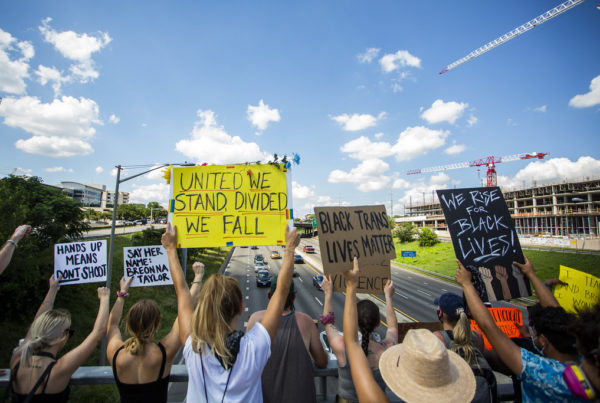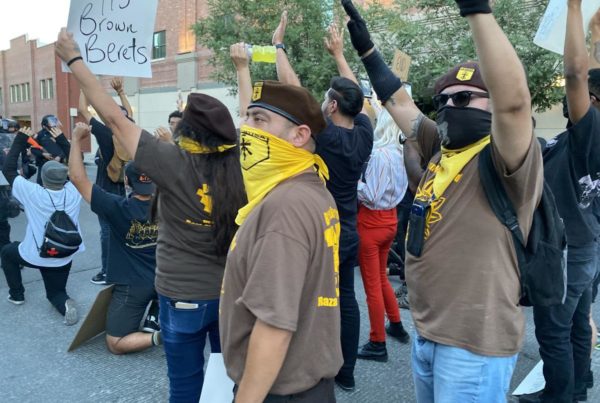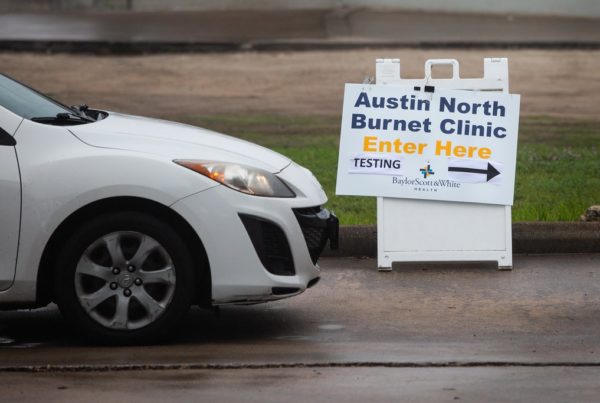The death of George Floyd, which occurred after a white Minneapolis police officer pushed his knee into Floyd’s neck for almost nine minutes, has served as a catalyst for protests in a country overcome by the inequitable and unjust treatment of African Americans and people of color.
Young people have been among the leaders of these protests – in Texas and around the nation. Texas Standard host David Brown spoke with three leaders who spearheaded events in Alpine, Vidor and Keller, Texas.
Yalakesen Baaheth was one of the organizers of last weekend’s protest in Vidor Texas – a community with a troubled racial history. When a friend proposed the idea, Baaheth, who will be a student at Lamar University in the fall, said “yes” right away.
“We knew the opposition, we knew the risk, but it didn’t matter,” Baaheth said. “We were still standing on something that we strongly believed.”
Charles Banks is a student at Tarrant Community College, and organizer of a Black Lives Matter protest in Keller, Texas, near Fort Worth. He reacted emotionally to Baaheth’s words. He said was running when he began thinking about Ahmaud Arbery, the black man who was pursued and killed by white men in a Georgia neighborhood. Arbery had also been running.
“I was so stuck on being that statistic,” Banks said. “I could just die that day. I could have died while I was running, and nobody would have noticed or cared. So I decided to do this march.”
Sedia Woods is from George Floyd’s native Houston. She’s currently a senior acting and directing major at Sul Ross State University in Alpine Texas, and she also has a connection to Minnesota, where Floyd’s life ended. She says her family is in St. Paul, “in the middle of all the protesting and making sure their voices are heard.”
“Every time an African American person is killed by police, I feel some type of way about it,” Woods said.
In those cases, she would often take to social media to get her feelings out, deleting her post before sending it “because no one cares what you have to say, Sedia.”
Woods said two caucasian friends in Alpine asked her to be their leader, and the face of the protest they wanted to see happen in the small, West Texas town. Woods, who has taken leadership roles at Sul Ross, agreed.
“I think it’s important that these protests are done everywhere,” Woods said. “It doesn’t matter how small or big your population is. You have a voice, and you deserve to be heard.”
There was opposition, some of it occurring during protests, some directed at organizers.
Woods said only one counter-protester showed up at the Alpine march, and demonstrators diffused the situation, telling the man they loved him. The counter-protester then left the scene, Woods said.
Banks said he received negative comments via text message, after he included his phone number on a flyer announcing the Keller protest. People texted racial slurs, and one person came to his home while Banks was away, and berated Banks’ sister.
“That scared me because it’s a march,” Banks said. “It has ‘peaceful’ on the flyer. I had the police walking with us so that we can be safe and not harm anybody.”
Baaheth’s Vidor protest received backlash from both supporters and opponents of the Black Lives Matter cause. She said people who considered participating in the march were afraid.
“The only marches and parades that have ever been held in that city were of the Ku Klux Klan,” Baaheth said.
The protest organizers agree that understanding others, and even supporting police who do their jobs well, is important.
Banks said he understands that fear of the unfamiliar, that’s sometimes experienced toward gay or transgender people, has similarities to what he experiences as a black man. And he doesn’t want people to be judged or discounted based on what they wear, even a police uniform.
“I want people to know that you can trust some policemen, like the Keller PD,” he said. “Because they have helped me a lot. And I want it to be on both sides. Nothing is going to change if one side is working and the other side isn’t.”
Baaheth said she supports police, and doesn’t want law enforcement defunded, as some protesters have advocated. She said she wants officers who “make mistakes” to be punished.
“They should not just be fired, and maybe a year or six months later, returned to the force,” Baaheth said.
Woods wants to see more communication about racism.
“My biggest message to Alpine, and to the world, is that we need to talk about this,”Woods said. “The family members, the coworkers, the people around you that you feel have any acts of racism or acts or people of color in them, talk to them.”
To observers who aren’t sure how to accept and apply the message of the protests, Woods asks for compassion and a willingness to speak out.
“I feel like if you can see a child crying and you pass that child up and not have a care in the world, then it may just be too late for you,” Woods said. “But if you’re one of those people and you see something wrong, and you want to do something about it… you need to take a step forward.”
Banks agrees. He says he isn’t mad at those who haven’t joined protests or expressed support for them. But he says they should put themselves in the position of African Americans who have experienced brutal racism.
“Don’t just sit there and let things go by,” Banks said. “You’re a person. You’re a human. You’re able to do things and create change.”
Trying to make change counts, too, Baaheth says.
“It’s OK. Nobody is judging you. Nobody will hold you down, but we will see your efforts,” she said.
Web story by Shelly Brisbin.


